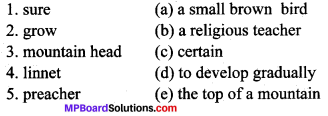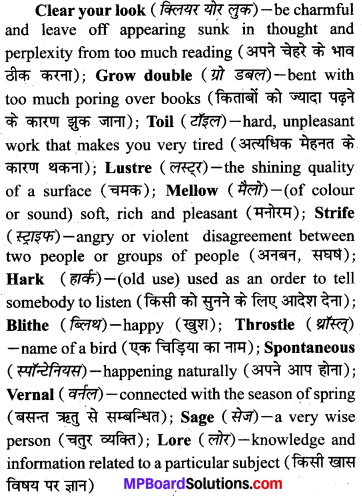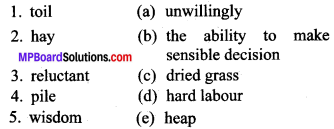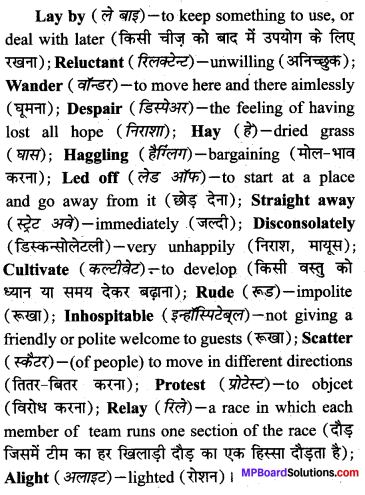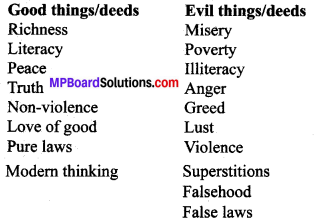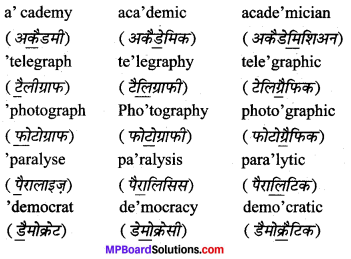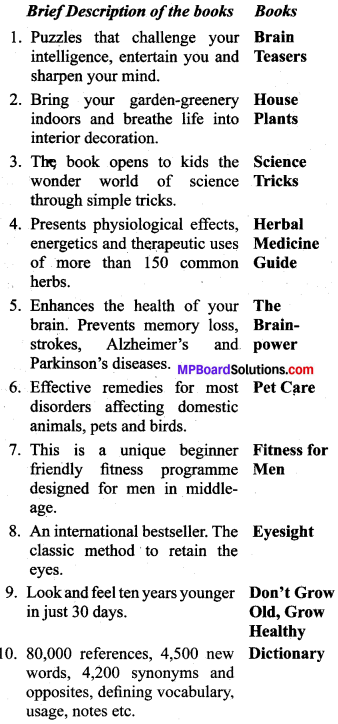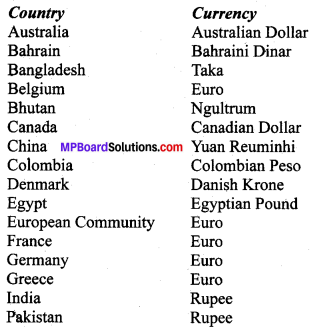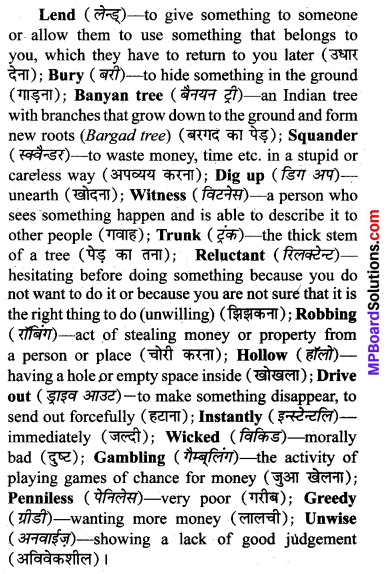Are you seeking for the Madhya Pradesh Board Solutions 10th General English Grammar Sentence Connectors Questions and Answers PDF? If yes, then read this entire page. Here, we are giving a direct link to download MP Board Class 10th English Solutions Questions and Answers PDF which contains the chapter wise questions, solutions, and grammar topics. You can also get the shortcuts to solve the grammar related questions on this page.
MP Board Class 10th General English Grammar Sentence Connectors
For the sake of students we have gathered the complete 10th General English Grammar Sentence Connectors Questions and Answers can provided in pdf Pattern. Refer the chapter wise MP Board Class 10th English Solutions Questions and Answers Topics and start the preparation. You can estimate the importance of each chapter, find important English grammar concepts which are having more weightage. Concentrate on the important grammar topics from Madhya Pradesh Board Solutions for 10th English Sentence Connectors Questions and Answers PDF, prepare well for the exam.
Sentence Connector या Conjunction वो शब्द है जो दो शब्दों/दो वाक्यों या वाक्यांशों को एक-दूसरे के साथ जोड़ता है। जैसे-
Ram is slow, Rahim is equally slow.
Ram is as slow as Rahim.
He did not see me.
He had finished his work.
He did not see me until he had finished his work.
आपके पाठ्यक्रम में as, since, while, than, just because व until sentence connectors है।
1. As
(i) As का अर्थ होता है क्योंकि’ (because)। जब एक वाक्य दूसरे वाक्य का कारण हो तो ऐसे वाक्यों को ‘as’ से जोड़ दिया जाता है। जैसे-
He was happy. He had passed the examination.
As he had passed the examination, he was happy.
(ii) ढंग अथवा तरीके (manner) को प्रकट करने के लिए ‘as’ का प्रयोग किया जाता है। जैसे-
As you sow, so shall you reap.
(iii) पहले काम के समाप्त होने से पूर्व यदि दूसरा काम हो तो ऐसे वाक्यों को ‘as’ से जोड़ दिया जाता है। जैसे
I reached the place. He left.
As I reached the place, he left.
(iv) एक कार्य को करते हुए दूसरा कार्य करना हो तो ऐसे वाक्यों को ‘as’ से जोड़ा जाता है। जैसे
Ram sang. He read.
Ram read as he sang
(v) तुलना करने के लिए भी ‘as’ का प्रयोग होता है।
Mohan is intelligent. Raja is not so intelligent.
Raja is not as intelligent as Mohan.
2. Since
Since का प्रयोग होता है-
(i) समय प्रकट करने के लिए। जैसे-
She has been laughing since morning.
He is sick since his childhood.
(ii) किसी कारण को प्रकट करने के लिए।
Since he is my elder brother, I respect him.
3. Than
Than तुलना प्रकट करता है व ऐसे वाक्यों को जोड़ता है जिनसे तुलना प्रकट हो।
I am strong. She is stronger.
She is stronger than me.
4. Just because
Just because का अर्थ कारण मात्र होता है, जैसे-
He is ill, He should not play.
He should not play just because he is ill.
5. Until
Until का अर्थ है ‘जब तक नहीं’। इसका उपयोग निम्न प्रकार होता है
She did not come to me. She had finished her work.
She did not come to me until she had finished her work.
6. While
While at in ff your stat
(i) जितने समय तक, उतने समय तक
There is life. There is hope.
While there is life, there is hope.
(ii) साथ – साथ कार्य होना
Ram was reading. His brother was singing.
While Ram was reading, his brother was singing.
(iii) विरोधभास के लिए
The boy is happy. His younger brother is sad.
The boy is happy while his younger brother is sad. –
(iv) Although के रूप में (मगर while शुरूआत में लिखा जथा है)
I agree with you. I can’t accept your offer.
While I agree with you, I can’t accept your offer.
Exercise 1
Fill in the blanks with suitable connectors :
1. …………………….. it was raining, he did not go to school.
2. No song is sweeter …………………….. our National Anthem.
3. …………………….. I was going to school, I saw an accident.
4. We shall play …………………….. the bell goes.
5. Let us wait …………………….. the rain stops.
6. You are scolding the child …………………….. he ate a sweet.
7. There is no need to lose hope …………………….. you do not know him.
8. He composed the poem …………………….. he walked on the beach.
9. Plants breathe …………………….. animals do.
10. I have not met him …………………….. he returned from abroad.
Answer:
1. Since,
2. than,
3. While
4. until,
5. until,
6. just because,
7. as,
8. while,
9. as,
10. since.
Hope that the above shaped information regarding the Madhya Pradesh Board Solutions for 10th English Sentence Connectors Questions and Answers is useful for making your preparation effective. View our website regularly to get other subjects solutions.
